IN ENGLISH
MONTENEGRO DENIES REFUGE TO LUKASHENKO CRITIC: Montenegrin Ministry of Interior claims that Belarus is a Democracy
Objavljeno prije
10 mjesecina
Objavio:
Monitor online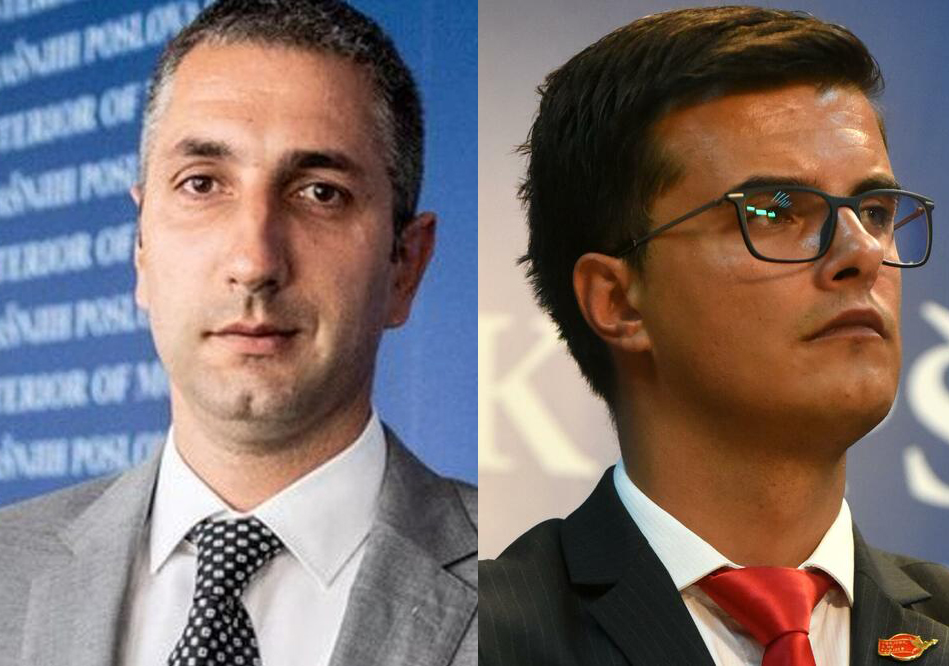
Based on the Ministry of Interior’s decision signed by Radovan Popovic, deputy minister and head of the Directorate for Administrative Affairs, Citizenship and Foreigners, it appears that Belarus is a democratic country where life is safe and full of opportunities. Popovic in his decision UP I-132/23-6651/3 dated 5 June 2024, has rejected the request for international protection filed by V.I (citizen of Belarus) because “there is no justified fear of persecution” in his home country
The High Court in Belgrade recently ruled again that Andrei Gnyot, a Belarusian film director, journalist and opposition activist, should be extradited to the totalitarian regime in Minsk based on the Interpol warrant issued by Belarus. He was arrested at the Belgrade airport on 30 October last year where he flew from Thailand. He was immediately taken into extradition custody to the Central Prison (CZ) in Belgrade. He left Belarus in June 2021 upon learning that Aleksandar Lukashenko‘s notorious KGB secret service was ready to go after him for his ties to the opposition. Gnyot is formally wanted for tax evasion amounting to around 300 thousand euros. He never received a hearing summon on the tax evasion accusations in the country. He allegedly committed tax evasion between 2012 and 2018 even though the law that regulates the matter was passed only in 2019. Gnyot rejected those accusations as “politically motivated”. He is one of the founders of the Free Association of Sportsmen of Belarus (FASB), which was set up after the rigged presidential elections in the summer of 2020, which caused massive civic protests and subsequent bloody repression by the regime whose closest ally is Putin’s Russia. FASB led an international campaign which resulted in disqualifying Belarus as the World Hockey Championship host. Moreover, the International Olympic Committee (IOC) has suspended the financing of the Belarusian National Olympic Committee (BNOC) chaired by President Lukashenko himself of which the Monitor already wrote about. The dictator took revenge on FASB by declaring it an “extremist organization”. The association’s lawyer, Aleksandar Danilevitch, was sentenced to ten years in prison. Retaliation followed against other members of the association, except Gnyot who managed to escape.
In the first judgment (7 December 2023), the High Court panel decided in favour of Gnyot’s extradition. Shockingly, the panel of judges even made a precedent by refusing to hear Gnyot about the charges against him. In early March of this year, the Court of Appeal overturned the decision and sent it back for a new decision. However, on 13 June, the first instance court pronounced the same verdict. The journalist has already announced he would appeal the decision. The only good news for Gnyot is that his prison detention of seven months was commuted to house arrest and confinement in a 20-square-meter studio apartment in Belgrade. International and local human rights organizations condemned the verdict and called on the authorities of Serbian President Aleksandar Vucic to end the persecution of political opponents of Minsk and Moscow who have sought refuge in Serbia.
When it comes to Montenegro, one would expect a better situation for asylum seekers, especially after the fall of the 30-year autocratic government of Milo Djukanovic and his Democratic Party of Socialists (DPS) whose role models were Vladimir Putin and Lukashenko. However, Belarusian national V.I. (who asked not to have his full name disclosed) thought so. However, the Ministry of Interior (MUP) proved him wrong. Radovan Popovic, the deputy interior minister and head of the Directorate for Administrative Affairs, Citizenship and Foreigners, considers Belarus a democratic country where life is safe and full of opportunities. The MUP decision has no mention of the ongoing war against Ukraine in which Belarus indirectly joined Putin by putting at his disposal its military bases, weapons, logistics and territory which served as a springboard for early drive on Kyiv. Popovic in his decision UP I-132/23-6651/3 dated 5 June 2024, rejects the request for international protection to the Belarusian citizen because “there is no justified fear of persecution” in the home country.
V.I., whose family already lawfully resides in Montenegro and runs a successful private business, requested protection upon his arrival in Montenegro on 27 July 2023 because of a threat that Lukashenko’s authorities would imprison him for political activism. Namely, after the disputed presidential elections in the summer of 2020, large protests broke out in the country. The wife of V.I. participated while he stayed aside fearing for the wellbeing of his private construction company. However, when the authorities began to violently break up the protests, V.I “couldn’t stay on the side-lines”. In August 2020 he “recorded a 20-minute video post on YouTube” in which he “publicly announced his position… and supported those who are fighting for free Belarus” and “victory of democracy”. He said that “Lukashenko suppressed the protests by shedding blood” and that “the people should reciprocate in the same way”. After a while, in the spring of 2023, his YouTube post was noticed by the authorities and then V.I.’s problems began. Tax inspections and state controls of his company became frequent for no other apparent reason. Moreover, the bank with which he cooperated for over 10 years suddenly denied him access to loans without explanation. After that, a friend in the KGB told him that the secret service found out about his YouTube video and that the problems with the company were not accidental. In July 2023, he received a phone call from the state security which asked him to come to the premises of the KGB. When asked why, he was told that he would find out upon arrival. He immediately bought a ticket to Istanbul and fled to Montenegro via Turkey, leaving his mobile phone with a SIM card in Minsk in case state security tracked his movements through mobile network towers. Later, he learned from a neighbour in Minsk that Lukashenko’s police came to his house to look for him. Then the police contacted his wife and asked about his whereabouts. She replied that they were not together and that he had left for Russia. V.I. is convinced that if he were to return to Belarus “he would find himself in prison” seeing how the authorities treat other entrepreneurs who expressed their views. The available reports of international organisations and western governments (UN, State Department, EU, HRW, Amnesty Int. etc.) contain many well documented cases of torture in Lukashenko’s prisons. The regime’s common practice is to charge dissenters with treason or rather with bribery/corruption so to be more convincing to the public, both domestic and foreign. Detainees are then forced to “confess their crimes” in front of cameras, as was the case of Roman Protasevitch, a journalist and an opposition activist. He “publicly repented” in front of Lukashenko’s television cameras after he was kidnapped from a Ryanair plane. Namely, Protasevich was on the Athens-Vilnius 4978 flight which he was diverted on 23 May 2021 by the Belarusian authorities under the pretext that a bomb had been placed on the plane. Escorted by a MIG-29 interceptor, the plane was forced to emergency landing in Minsk. The journalist and his Russian girlfriend were snatched away and arrested whereas no reported bomb was found on the plane.
However, all these examples of Protasevitch, Gnyot and over 1,400 political prisoners in Lukashenko’s fiefdom were not convincing enough to Popovic, a close associate of the Interior Minister Danilo Saranovic (a high official of the Democrats of Montenegro) since they “do not meet the requirements of Article 3” of the Asylum Law. Neither the fear of V.I. of what might happen to him if he returns home “prevailed enough” to grant him international protection because “there was no element of persecution”. He is also reproached for not seeking asylum in the first transit country, Turkey, which received 3.5 million refugees from Syria, probably on purpose, overlooking that the applicant’s family already lived in Montenegro with a lawful residence and a successful family business. He wouldn’t be a financial liability to the state if he were allowed to stay with his family in the country of refuge.
Popovic claims in the decision he signed, that in accordance with the Geneva Convention and the Directive on Asylum Procedures, “a country is considered safe when, within the framework of its democratic system, there is generally and permanently no persecution, no torture or inhumane treatment…threats of violence”. Nonetheless “even though, to a certain extent, there are violations of human rights in Belarus”, the MUP finds out that V.I. “can return unhindered to the country of origin, and that his life, freedom and security would not be endangered by his return”. Popovic further elaborates that Belarus is an “industrially developed country” and that its main trade partner is Russia, stressing that natural gas largely transits from Russia to the EU (through Belarus). Popovic praises the construction of the Nord Stream 2 pipeline… from Russia to Germany under the Baltic Sea which was completed in 2021 and “is a factor that has a direct impact on the Belarusian economy”. Popovic apparently forgets that Nord Stream 2 has been closed and partly blown up after the beginning of invasion of Ukraine. He doesn’t bother to explain what the gas pipeline has to do with fate of V.I. if he would return home. Popovic also praises Belarus for receiving 2,915 refugees under the mandate of the UNHCR, 143 asylum seekers and over 6 thousand stateless persons. It highlights the successes of the Lukashenko regime in the fight against human trafficking and commends Belarus for being one of the 152 countries that voted for the adoption of the Global Security Agreement. Therefore “in accordance with the above, this institution has concluded that the conditions set forth to constitute persecution in the sense of Article 1A of the Geneva Convention have not been met”. Furthermore, the statement of V.I. makes it “clear that he did not experience persecution given that his allegations are not that egregious” to constitute a serious violation of human rights. It appears that it would be better for V.I. that he first experienced torture in prison as that might convince Popovic (who is also a lecturer at the Police Academy in Danilovgrad) that he was is in danger.
The leader of the Belarusian opposition Sviatlana Tsikhanouskaya, has been informed about the Montenegrin MUP’s reasoning and denial of asylum. She herself had to flee the country after the Minsk regime refused to recognize her victory in the presidential elections in 2020. Her husband was already in prison before the elections. She was sentenced in absentia to 15 years in prison by Lukashenko’s court. Many democratic governments recognize her as the country’s legitimate leader. Her staff told the Monitor that the opposition in exile had proposed to President Jakov Milatovic and Prime Minister Milojko Spajic to meet with Tsikhanouskaya several times after she had previously met with the governments of Greece and Albania. No response ever came from Montenegro.
Fortunately for V.I. he can appeal Radovan Popovic’s decision before the Administrative Court of Montenegro. V.I. still hopes that he will not have to face the democracy and justice of Lukashenko’s government.
Jovo MARTINOVIĆ
Komentari
IZDVOJENO
-
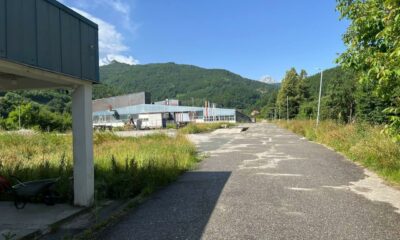

ANDRIJEVICA, ZATVORENA PRVA FABRIKA PELETA U DRŽAVI: Tajkunska misija privedena kraju?
-
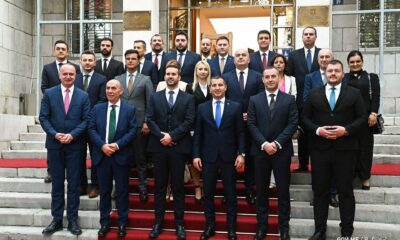

UPRAVLJANJE DRŽAVNOM IMOVINOM: Zašto je Vlada naumila da razvlasti parlament
-
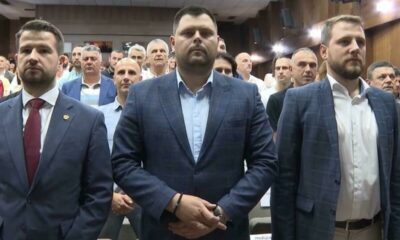

SLUČAJ MARKA KOVAČEVIĆA: Kontinuitet govora mržnje
-
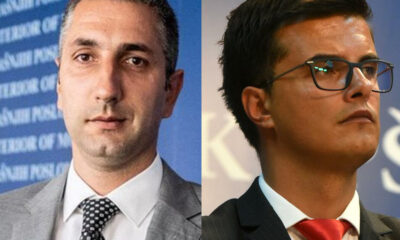

NI U CRNOJ GORI NEMA MJESTA ZA LUKAŠENKOVE KRITIČARE: Za naš MUP Bjelorusija je demokratska država
-
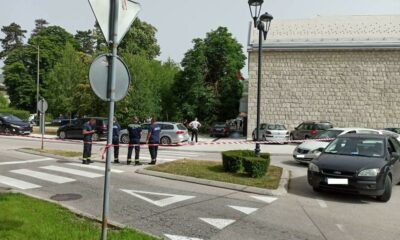

EKSPLOZIJA NA CETINJU: Rat koji nije stao
-


MIORAG VUJOVIĆ, ORGANIZACIJA KOD: Stvaraju se preduslovi za raspodjelu nacionalnih resursa
IN ENGLISH
Government Summons Ambassadors for Consultations and Instructions: A Foreign Policy Tightrope
Objavljeno prije
6 danana
12 Aprila, 2025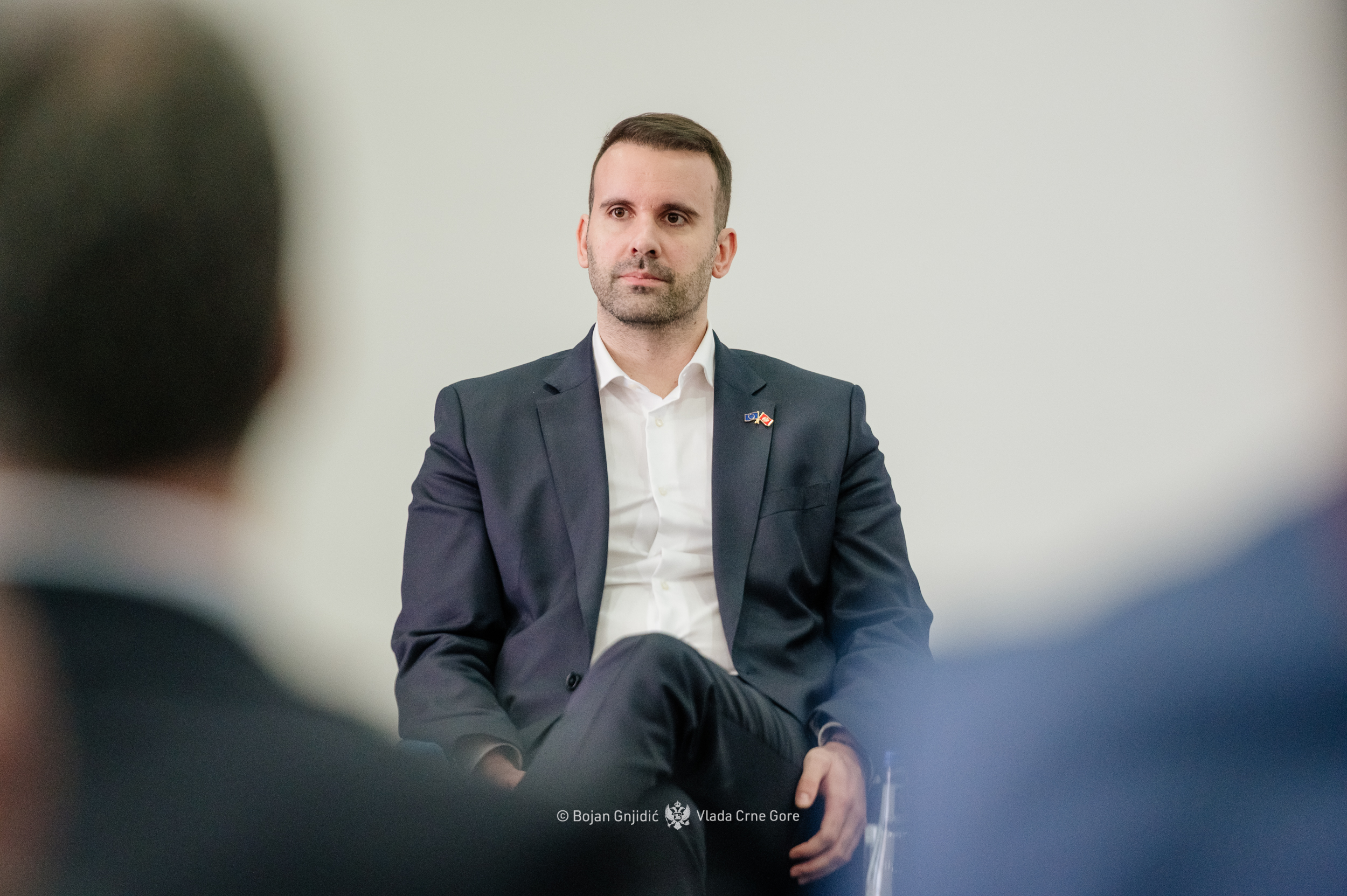
Prime Minister Milojko Spajic recently held a series of individual meetings with Montenegrin ambassadors—from Ukraine to Europe to the United States. Informal sources within the government say that during these meetings, the Prime Minister outlined a new geopolitical landscape shaped by Donald Trump’s return to power in the U.S. and evolving dynamics with the European Union
At the end of February, the Ministry of Foreign Affairs (MFA), led by Minister Ervin Ibrahimovic, summoned nearly all Montenegrin ambassadors stationed in Europe and the U.S. for urgent consultations, set to begin on March 6. The move sparked anxiety among some diplomats, who feared a repeat of the events of November 15, 2024, when three ambassadors were abruptly dismissed.
Monitor finds out that Spajić met separately with key diplomats, including Ukraine-based Borjanka Simicevic and U.S.-based Jovan Mirkovic. However, the concerns of mass dismissals proved unfounded. Instead, sources say the Prime Minister emphasized Montenegro’s continued commitment to the EU and instructed ambassadors to maintain a clear, pro-European stance. At the same time, he advised them against making any public criticisms of the United States or commenting on current rifts between the U.S. and its European allies.
Montenegro’s calibrated position became evident on March 11 at a meeting of top European military officials in Paris, where strategies for supporting Ukraine were discussed following Washington’s announcement of a suspension in military aid. The U.S. was not invited to the Parish meeting as the European leaders were keen to show they could step up independently if needed. Though an AP report initially stated that only Montenegro and Croatia, among NATO’s European members, failed to respond to the invitation, the Prime Minister’s Security and Defense Advisor, Todor Goranovic, told Radio Free Europe (RFE) that Montenegro would indeed participate. However, only the deputy military representative to NATO in Brussels attended because “Chief of General Staff Zoran Lazarevic was officially visiting Bulgaria at the time” – Goranovic explained.
Meanwhile, dissatisfaction is growing within Montenegro’s ruling coalition over Ambassador Mirkovic’s performance (or the lack thereof) in Washington. Tensions reportedly flared after a mid-February meeting with U.S. officials where he suggested that the fall of Serbian President Aleksandar Vucic could weaken some of his Montenegrin puppets. The details of the aforesaid meeting could not be independently confirmed. The subsequent report sent to Podgorica reportedly angered Spajic’s coalition partners from the former Democratic Front (DF). Although the DF was not directly mentioned in the report, its officials saw themselves as being referred to by the ambassador. One of them even retorted that those remarks would be a ground for the ambassador’s recall.
Discontent also emerged from the opposite ideological camp. Metropolitan Boris of the Montenegrin Orthodox Church (MOC) sent a protest letter to Minister Ibrahimovic, complaining that the embassy in Washington did not engage with the MOC delegation during their visit. The embassy, he wrote, failed to meet with them or assist in organizing meetings with U.S. officials. Furthermore, Metropolitan Boris complained that the embassy was “ignorant of some names and institutions that we wanted to reach out to”. He directly blamed the ambassador for the embassy’s dismissive stance.
As Monitor has previously reported, the embassy in Washington is increasingly out of sync with developments in the U.S. The once-prominent Montenegrin Caucus in Congress, which boasted 42 members under former ambassador Srdjan Darmanovic, has effectively dissolved. It’s now reduced to a single member—Congresswoman Chellie Pingree from Maine. Darmanovic had successfully lobbied to counter opposition to Montenegro’s NATO membership, despite concerns over ties of the Djukanović government with foreign criminal networks and Russian intelligence services.
Pingree reportedly sent multiple letters to the embassy criticizing the lack of engagement, but received no response. Monitor also reached out to her office twice for comment but had not received a reply at the time of publication.
Diplomatic affairs aren’t running smoothly in Europe either. In late January, the government approved the appointment of 14 new ambassadors. The list was coordinated with President Jakov Milatovic, whose signature is required for the appointments. Opposition parties and members of the pro-Serbian bloc raised objections, particularly over the inclusion of figures associated with the long-ruling Democratic Party of Socialists (DPS) and former foreign minister Milan Rocen.
One such appointee is Dragana Radulović, a longtime diplomat and former advisor to Prime Minister Dusko Markovic. She was posted to New York as Montenegro’s representative to the UN. She has been in diplomacy since 2000. Internal sources indicate that Veljko Milonjic initially hoped for the post in New York but was instead sent to Warsaw. Milonjic is remembered for his involvement in the so-called “cocaine affair” of 2015 when he was the head of Montenegro’s consulate in Munich. A truck from Munich carrying drugs under diplomatic seal was intercepted at the Austrian border. Though the Ministry of Foreign Affairs denied direct involvement, the incident cast a long shadow. Milonjic denied wrongdoing but was quietly recalled while the Consulate General in Munich was closed down. Milonjic was later appointed to a senior diplomatic post despite the scandal never being prosecuted. The truck driver, Sasha Mugosha, was sentenced to six years in prison. He was released after serving two and a half years and deported to Montenegro.
In March, the government announced that former German Bundestag member Holger Haibach had been appointed as a senior special advisor to Prime Minister Spajic, beginning January 1. Haibach will advise on regional relations in the Western Balkans and support EU accession efforts. His services will be funded by Germany’s Center for International Peace Operations (ZIF). While Haibach’s selection followed a public hiring process, sources in the diplomatic community question his current influence in Berlin. Haibach, a former CDU member of parliament, left office in 2011. Meanwhile, Veljko Kustrov, a Herzegovinian with close ties to Spajic, is considered his main point of contact in Germany.
Perhaps the most controversial diplomatic appointment so far is that of Dusanka Jeknic, a figure from the 1990s linked to the Djukanovic regime and repeatedly associated with cigarette smuggling. However, the Italian prosecutors could not present sufficient evidence against her in court. Jeknic was assigned to the embassy in Turkey after President Milatovic purchased property from her in Podgorica. Milatovic later claimed he had not been consulted on her appointment, stating that such decisions were under the MFA’s jurisdiction. He emphasized that his property purchase had been properly reported to Montenegro’s Agency for the Prevention of Corruption.
Previously, Milatovic had criticized the appointment of Predrag Drecun to lead Montenegro’s Investment Development Fund because of his close ties to the Djukanovic regime.
Montenegro is yet to drive a long and bumpy road before it gets a professional diplomatic network.
Jovo MARTINOVIĆ
Komentari
IN ENGLISH
TWILIGHT OF MONTENEGRIN INTERESTS IN AMERICA: Prayer Breakfast Instead of Real Diplomacy
Objavljeno prije
6 danana
12 Aprila, 2025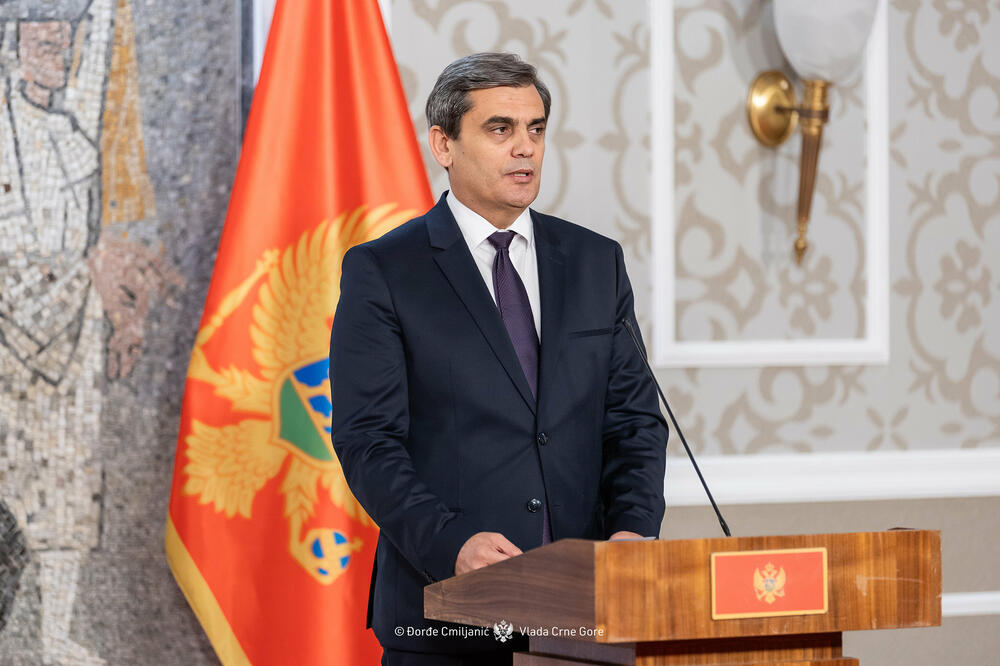
Aside from occasional trips and engagements with diaspora organizations, Montenegro shows little sign of having a coherent lobbying strategy in the United States. With the retirement of Congressman Doug Lamborn, the Montenegrin Congressional Caucus has dwindled to just one representative: Congresswoman Chellie Pingree from Maine
The 73rd annual National Prayer Breakfast in Washington recently took place, drawing more than three thousand leaders and prominent figures from politics and civil society from around the globe. Over the course of two days, participants had opportunities to network and exchange ideas at the Hilton Hotel, under the official patronage of the U.S. President.
Invitations were extended to a broad range of Montenegrin officials, including Prime Minister Milojko Spajic, Foreign Minister Ervin Ibrahimovic, Deputy Prime Minister for Economic Policy Nik Djeljoshaj, Minister of Urban Planning Slaven Radunovic, Minister of Transport Maja Vukicevic, and Minister for Human and Minority Rights Fatmir Djeka. Parliamentary invitees included many MPs, both from the opposition and the majority. Former President Milo Djukanovic and his close aide Branimir Gvozdenovic received invitations as well as several other ex officials. Also in attendance was Vijesti columnist and co-founder Zeljko Ivanovic—reportedly the only one whose travel wasn’t funded by taxpayers.
Branimir Gvozdenovic is often featured in pro-DPS (Democratic Party of Socialists) media as a regional liaison for the Prayer Breakfast. However, his name is absent from the official records of the event’s organizing foundation. Meanwhile, the Montenegrin delegation was accompanied by support staff including security, administrative personnel, and translators — necessary, since only Minister Vukicevic speaks fluent English. Translation was required for Djukanovic, Gvozdenovic and most MPs.
The cost of attending the Prayer Breakfast—including registration fees, three nights in a hotel, airfare, and daily allowances (currently €112 per day) — typically totals around $3,000 per person. When accompanying staff is added, the total bill reaches into the tens of thousands of euros. Out of the entire group, only Ministers Ibrahimović and Djeka were scheduled for official meetings at the U.S. State Department.
Minister for the Diaspora Adem Azemovic, representing the Bosniak Party, made his second trip to the U.S. in a month, accompanied by two associates. In late December, he met with Naser Nika, head of the Albanian-American Association of Staten Island. After the New Year he returned to meet him again. When asked why a second meeting was necessary, the Ministry explained that the first encounter had been brief, and the second was based on an official invitation. The association, which includes Albanian Montenegrins living in Staten Island, was praised for promoting Montenegro in New York.
Azemovic also visited the New York State Assembly, which is reportedly considering hosting Montenegro’s Independence Day celebration. His office described this as an opportunity to mark one of the country’s most significant holidays in a high-profile setting. Interestingly, Montenegro’s Independence Day was already celebrated at New York City Hall on May 23, 2024, in an event organized by the Albanian-American Association of Ulcinj. That celebration included Montenegro’s Consul Amer Cikotic and the Association’s president Dzelal Lanica. Nika had publicly criticized the event on Facebook, claiming that it misrepresented interethnic relations in Montenegro and highlighted Serbian political influence via Serbian President Vucic-backed factions.
Despite these diaspora engagements, there is little to suggest that Montenegro has any serious lobbying efforts in Washington—particularly with key decision-makers. Nebojsa Medojevic, leader of the Movement for Change (PZP), remarked that “Montenegro simply failed to grasp the magnitude and significance of political changes occurring in the U.S.”
“The current ambassador —Professor Jovan Mirković is openly anti-Trump and a personal ally of Aco and Milo Djukanovic” Medojević stated. “He has no meaningful contacts in Washington and no ideological alignment with the current direction of U.S. politics, so it’s unclear who or what he’s even representing.” He went on to question the competence and professionalism of the current government’s foreign policy team.
Interestingly, Nebojsa Todorovic, the former chargé d’affaires in Washington, had warned the Ministry of Foreign Affairs (MFA) and the government in late 2023 to prepare for a potential return of Donald Trump.
Since arriving in Washington in mid-September, Ambassador Mirkovic has maintained a notably low profile. His biography reveals he spent several years in Russia during the early 1990s—the same period when Milan Rocen was serving as minister-counselor at the Yugoslav embassy. Sources claim that Mirkovic has family ties in Russia and is known for his longstanding loyalty to the Djukanovic regime. Neither Djukanovic nor his Democratic Party of Socialists (DPS) have ever renounced their 2011 strategic cooperation agreement with Putin’s United Russia. In fact, the DPS publicly reaffirmed its pride in these ties in Parliament last year.
With the departure of Doug Lamborn—one of the Montenegrin Caucus’s co-chairs—the group now counts only a single member: Congresswoman Chellie Pingree. Meanwhile, Serbia has been actively growing its influence. Foreign Minister Marko Djuric, a former ambassador to Washington, has built up the Serbian Caucus to nearly 40 members. Djuric even boasted that Serbia, though not a NATO member, has stronger U.S. ties than Montenegro.
Some claim that Serbia pressured Podgorica through influential regional businessmen into sending a low-impact figure to Washington. The contrast with past Montenegrin diplomacy is stark: Under Ambassador Srdjan Darmanovic, the Montenegrin Caucus had grown to 42 members, surpassing even the Albanian caucus. Darmanovic worked closely with Congressman Mike Turner to gain U.S. support for NATO accession—despite Djukanovic’s regime then-notorious links to organized crime and Russian intelligence services.
Efforts to revive the caucus were briefly relaunched by Nebojsa Todorovic, who during his stint as chargé d’affaires in 2023 helped re-engage 10 U.S. lawmakers, including Turner and other influential committee chairs such as Michael McCaul and Robert Aderholt. For a brief period, Montenegro held a unique status in the Balkans, with three Congressional committee leaders in its caucus.
However, Todorovic has since been recalled, and with him, much of Montenegro’s presence in Washington has faded again into inertia.
This raises uncomfortable questions: Is Spajic’s government reverting to the old practice of conducting diplomacy through informal channels and business networks, as seen under Djukanovic and his top advisor Rocen? At the time, oligarchs like Oleg Deripaska and other Putin loyalists were reportedly enlisted to lobby for Montenegro in the West.
That line of approach came at a steep cost to the country—and its reputation.
Jovo MARTINOVIĆ
Komentari
IN ENGLISH
2BS FORUM IN KGB HOTEL: Atlantic Council of Montenegro – who and what it represents?
Objavljeno prije
5 mjesecina
7 Novembra, 2024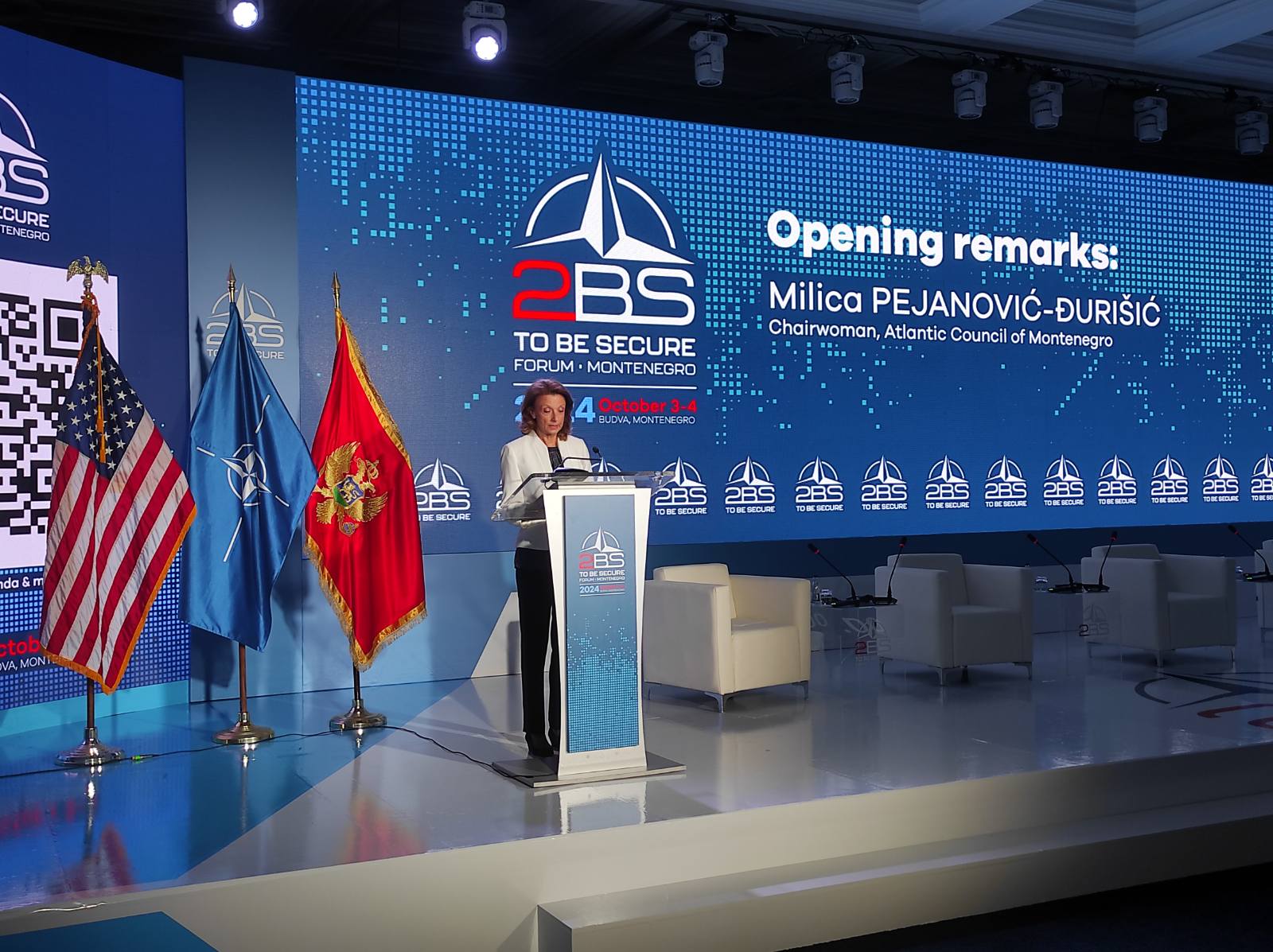
The current ACM chairperson is Milica Pejanovic – Djurisic, a long-time official of the once ruling DPS, former minister of defence and a reputable senior diplomat. The activities of the ACM are realised through three centres of which the Digital Forensic Center (DFC) comes to the fore. DFC was founded in 2018 and has released a number of publications on Russian malign influence, mainly from the view point of DPS
Last week (3-4 Oct) the 14th To Be Secure Forum Montenegro (2BS) took place in Hotel Splendid in Becici – Budva, under the auspices of the Atlantic Council of Montenegro (ACM). Its website states that 2BS is a leading politico – security conference in Southeast Europe. This year’s topic is World in Disorder: Turning Adversity into Opportunity with a focus on the repercussions and security challenges in the Western Balkans.
The event brought together more than 400 participants including government officials, high-ranking representatives of international organisations and diplomatic missions, and prominent experts in security and international relations. ACM points out that “it has devoted itself to the promotion of Euro-Atlantic values and international security since it was founded in 2006”. In the same year, the ACM became a member of the global Atlantic Charter Association (ATA).
The current ACM chairperson is Milica Pejanovic – Djurisic, a long-time high official of the Democratic Party of Socialists (DPS). She was also a Minister of Defence and a reputable senior diplomat. The ACM activities are carried out through 3 centres, of which the most exposed is the Digital Forensic Center (DFC) founded in 2018. DFC has released a number of publications on the subject of Russian malign influence, mainly from the view point of DPS. Allegedly, the DFC was founded in order to “fight against disinformation, fake news and propaganda campaigns aimed at destabilising democratic processes in Montenegro and the Western Balkans.”
The founder of the 2BS Forum and the DFC is Savo Kentera from Budva. He chaired the Montenegrin Atlantic Council from 2008 until May 2022, when the minority government of PM Dritan Abazovic (supported by DPS in the national assembly) appointed him to head the National Security Agency (NSA). Mr Kentera lasted little less than 5 months. As soon as the 12th 2BS Forum in Becici was over, he was sacked by the government following the DPS termination of support to Abazovic after he signed signed the controversial Concordat with the Serbian Church (SOC). Prior to his sacking Mr Kentera launched an NSA operation against Russian spy network, allegedly in cooperation with international partners and the Special Prosecutor’s Office (SPO). Two Montenegrin citizens were arrested, 6 Russian diplomats were expelled, and 28 foreigners were barred from entering the country.
However, the whole operation turned out to be a farce. Eventually, the two Montenegrins were not accused for espionage. Only one was suspected for illegal possession of weapons. No trial has ever taken place.
It is worth noting that the 2BS Forum founder (who claims that he supports Euro-Atlantic values) for many years chose the same hotel for the conferences. The founder of Hotel Splendid and its majority owner is now late Viktor Ivanyenko – retired director of the infamous KGB. During his term under President Boris Yeltsin, the service changed its name to the Federal Security Service (FSB). How a state employee and the chief of spies of the Russian Federation (and with money of dubious origin) came to own 4 hotels on the Montenegrin coast was never a reason for any concern, let alone inquiry, while the country was led by so-called pro-western Milo Djukanovic.
The Russian president Vladimir Putin (who was also at the helm of FSB following Ivanyenko’s retirement) said in 2004 that “ there is no such thing as a former KGB man”. The hotel is known as a meeting place of Russian intelligence and foreign and local business people and/or criminals. One of them, very close to Djukanovic, was put on the US Treasury’s blacklist, while another of his buddies is now under the protection (from going to prison) of Aleksandar Vucic.
Not only politicians and criminals have links with the Russian intelligence. In the aforesaid hotel on 24 May 2022 the then head of the Montenegrin Church (MOC) Miras Dedeic (The Rt Rev. Mihailo) met with a GRU (Main Intelligence Directorate) colonel Leonid Malofeyev. After a 5-hour meeting the two were photographed together. Mr Malofeyev, whose photographs with the Rt Rev. Mihailo were published by Podgorica-based Antena M, appeared in the robes of the Metropolitan of Moscow and All of Russia of The True Orthodox Church of Russia under the monastic name of Seraphim.
The aforementioned religious organisation (which is one of the proxies of the Russian intelligence) has developed deep ties with the MOC, including financial ones, according to critics of Bishop Mihailo. On the other hand, the Serbian Church has never even tried to conceal its non-spiritual ties with the Moscow Patriarchate. Based on the briefly opened state archives after the collapse of the USSR, the current Russian Church (ROC) head Kirill Gundyayev, is also a KGB agent who was later awarded tax free business with alcohol and cigarettes.
Much has already been published and circulated about substantial financial and political support of Vladimir Putin and his oligarchs to the project of independent Montenegro. Published audio conversations (covertly recorded) of the then Serbia and Montenegro ambassador to Russia Milan Rocen (and a long time confidante of Milo Djukanovic) have shed a new light on the Russian role in Montenegro’s independence drive. The release of heretofore unpublished recordings were recently heralded by the pro-Russian outlet IN4S. However, the publication of contents which could be potentially harmful to the DPS was stopped – allegedly on orders from the Russian embassy.
Under the DPS and its leader Djukanovic, Montenegro became one of the hubs for Russian spies and Russian organised crime in Southeast Europe. The western press and official reports of the western governments constantly warned about the Russian influence in Djukanovic’s fiefdom. Moreover, in 2011, the DPS signed a strategic agreement with Putin’s United Russia which has never been revoked. The DPS was recently challenged in the Montenegrin parliament to revoke the agreement with the United Russia. However, a DPS MP indirectly ruled it out.
In March 2023, a Russian opposition paper Novaya Gazeta and Transparency International, published a detailed report on the continued influx to Montenegro of Russian dirty capital, spies and intelligence experts for cyber warfare in 2019.
The purchase of real estates, including a cultural heritage site protected by law, and the further entrenching of Russian intelligence could not happen without the blessing of the DPS authorities. Back in 2019, Montenegro was already in NATO and claimed that it was on bad terms with the Kremlin due to so-called coup d’etat attempt in the fall of 2016 in the wake of parliamentary elections. The subsequent televised trial turned into a satirical farce resulting in the first-instance acquittal of all the defendants.
Nevertheless, the subsequent reactions of the prime minister show that the conference was rather used to promote Djukanovic again. Furthermore there are allegations of behind-the-stage efforts to broker a coalition deal for power sharing in the capital city of Podgorica with the political forces of the current president, Jakov Milatovic.
Spajic didn’t turn up at the Forum. He tweeted on X that the conference went “contrary to expectations” and became “mainly a platform for the analysis of local Podgorica election results by prominent experts like Djukanovic and Milatovic. They silenced the foreign guests by bickering against their own country.” According to informal sources, the Government has not wired the money yet.
The quantity and quality of ACM’s cooperation with similar organisations is also questionable, at least when it comes to the promotion of the aforesaid Euro-Atlantic values. Those values should primarily mean support for democracy, the rule of law and fight against organised crime.
In communication with our paper, the director of the European Center of the Atlantic Council of the USA, Jorn Fleck, emphasises that the ACM and the American Atlantic Council are two completely different organisations. As for the activities of the US Atlantic Council in Montenegro, Fleck says that “one of the Europe Center’s nonresident fellows attended the Western Balkans Growth Summit in May in Kotor. The same fellow was invited by event organisers to attend the inauguration of President Milatovic”. Furthermore, “in 2019, the Atlantic Council took a delegation of Congressional Staffers to the region, including a stop in Montenegro”.
Komentari
Kolumne

Novi broj
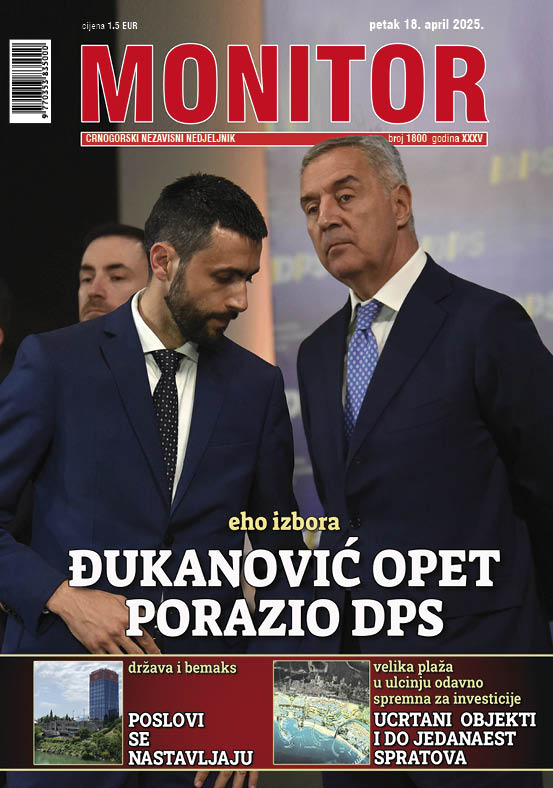

Government Summons Ambassadors for Consultations and Instructions: A Foreign Policy Tightrope

TWILIGHT OF MONTENEGRIN INTERESTS IN AMERICA: Prayer Breakfast Instead of Real Diplomacy

TRAMPOVE IGRE CARINAMA: Globalno potčinjavanje ili globalni otpor
Izdvajamo
-
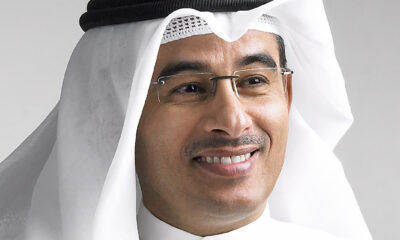
 DRUŠTVO4 sedmice
DRUŠTVO4 sedmiceŠEIK MOHAMED ALABAR – MEGA INVESTITOR NA VELIKOJ PLAŽI: Planove izradili planeri Beograda na vodi
-
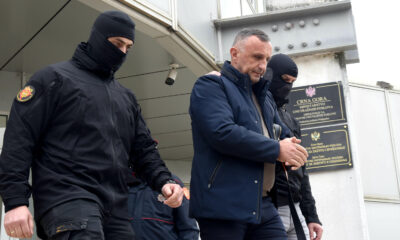
 DRUŠTVO3 sedmice
DRUŠTVO3 sedmiceNOVA HAPŠENJA ZBOG ŠVERCA CIGARETA: Pao i drugi vlasnik Tehnomaxa
-
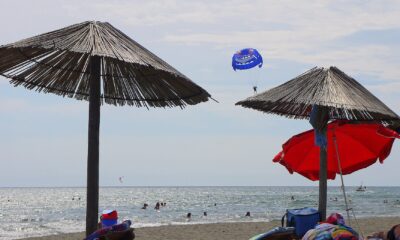
 DRUŠTVO4 sedmice
DRUŠTVO4 sedmice,,SLUČAJ TENDER” ZA ULCINJSKA KUPALIŠTA: Brzina koja budi sumnju
-

 Izdvojeno4 sedmice
Izdvojeno4 sedmiceGAZA U IZRAELSKO-AMERIČKOM PAKLU: Zeleno svijetlo za čišćenje
-

 IN ENGLISH6 dana
IN ENGLISH6 danaTWILIGHT OF MONTENEGRIN INTERESTS IN AMERICA: Prayer Breakfast Instead of Real Diplomacy
-
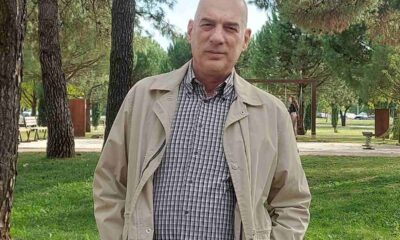
 INTERVJU4 sedmice
INTERVJU4 sedmiceBALŠA BRKOVIĆ, PISAC: Svi smo mi pod krovom neke nadstrešnice
-

 IN ENGLISH6 dana
IN ENGLISH6 danaGovernment Summons Ambassadors for Consultations and Instructions: A Foreign Policy Tightrope
-

 Izdvojeno3 sedmice
Izdvojeno3 sedmiceVLADA ZVALA AMBASADORE NA RAPORT I INSTRUKCIJE: (Ne)sluh za vanjsku politiku






